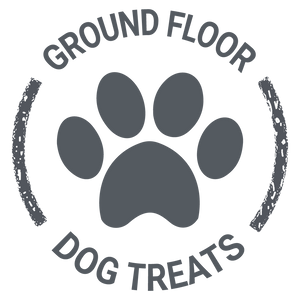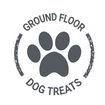Are your dog treats 100% Natural?
Yes, Our peanut Butter Dog Biscuits and training bites are made using only 100% Australian-sourced natural ingredients, and our dried treats are single ingredients made from 100% Australian-sourced natural ingredients, (with the exception of NZ Green Lipped Mussels). There are no added sugars, no added preservatives, no additives, no fillers and no artificial colours or anything else.
Is Peanut butter safe for dogs?
The short answer is Yes, BUT,
Did you know not all peanut butter has the same ingredients? In fact some peanut butter is high in sodium, sugar, salt, and ingredients that are unhealthy for dogs, and lets be honest, humans too.
Some sugar-free peanut butter has xylitol as a sweetener. Xylitol is toxic to dogs; it causes a rapid release of insulin in dogs. If left untreated, it can be a life-threatening condition. Some dogs may be allergic to peanuts.
So whilst most dogs (like humans) will love their daily dose of peanut butter, there are those among us who are unable to enjoy such treats.
It is always important to monitor your dogs when giving treats, always provide fresh clean water, and if a reaction occurs, consult your local veterinarian.
Some sugar-free peanut butter has xylitol as a sweetener. Xylitol is toxic to dogs; it causes a rapid release of insulin in dogs. If left untreated, it can be a life-threatening condition. Some dogs may be allergic to peanuts.
So whilst most dogs (like humans) will love their daily dose of peanut butter, there are those among us who are unable to enjoy such treats.
It is always important to monitor your dogs when giving treats, always provide fresh clean water, and if a reaction occurs, consult your local veterinarian.
Are Ground Floor Dog Treats Australian Owned?
Yes, Ground Floor Dog Treats is a small family business based in North Queensland. We are 100% Australian-owned, and all our dog treats are 100% Australian made from 100% Australian ingredients.
Why is rawhide dangerous for dogs?
While rawhide chews may seem like a convenient way to keep your dog occupied, the dangers they present are significant. Here are some of the reasons why you should think twice before giving rawhide to your pet:
- Choking Hazard: As dogs chew on rawhide, it softens and breaks apart into small, easily swallowable pieces. These pieces can lodge in your dog’s throat or digestive tract, creating a choking hazard or leading to intestinal blockages.
- Digestive Distress: Rawhide is not easy to digest. Once swallowed, large pieces can cause blockages in your dog’s digestive system. This can result in vomiting, diarrhea, or even require surgical intervention.
- Chemical Processing: Rawhide chews often undergo a series of chemical treatments during their production. These treatments may involve the use of toxic chemicals like bleach or formaldehyde to preserve the hides and give them their characteristic light colour. Ingesting these chemicals, even in small amounts, could be harmful to your pet’s health.
- Bacterial Contamination: Since rawhide is an animal product, it carries the risk of bacterial contamination, such as salmonella or E. coli. These bacteria not only pose a threat to your dog but can also be transmitted to your household, putting everyone at risk.
What are the best treats for dogs?
The best treats are those made from high-quality, natural ingredients, free from artificial additives, and suited to your dog's dietary needs. Options like dried meats, and single-ingredient treats are great choices.
How often should I give my dog treats?
Treats should make up no more than 10% of your dog’s daily calorie intake. Moderation is key to preventing obesity and health issues.
Can I give my dog treats every day?
Yes, as long as they are given in moderation and are healthy. Use them for training, rewards, or enrichment without overfeeding.
Can dog treats replace regular meals?
No, treats are meant to supplement your dog’s diet, not replace balanced meals.
Can dog treats cause obesity?
Yes, if given excessively. Stick to portion sizes, choose low-calorie treats, and ensure your dog gets regular exercise.
Are dairy-based treats okay for dogs?
Some dogs tolerate dairy well, but others may be lactose intolerant. Test with small amounts to see how your dog reacts.
Why does my dog beg for treats all the time?
Dogs learn to beg if they receive treats too frequently. Establish a routine, reward good behaviour only, and avoid excessive handouts.
Can treats help with separation anxiety?
Yes, long-lasting chews or stuffed treat toys (like Kongs) can provide mental stimulation and reduce anxiety when you leave.
Can senior dogs eat the same treats as younger dogs?
Senior dogs may need softer treats that are easier to chew, as well as treats with added joint-supporting ingredients like glucosamine and chondroitin.


